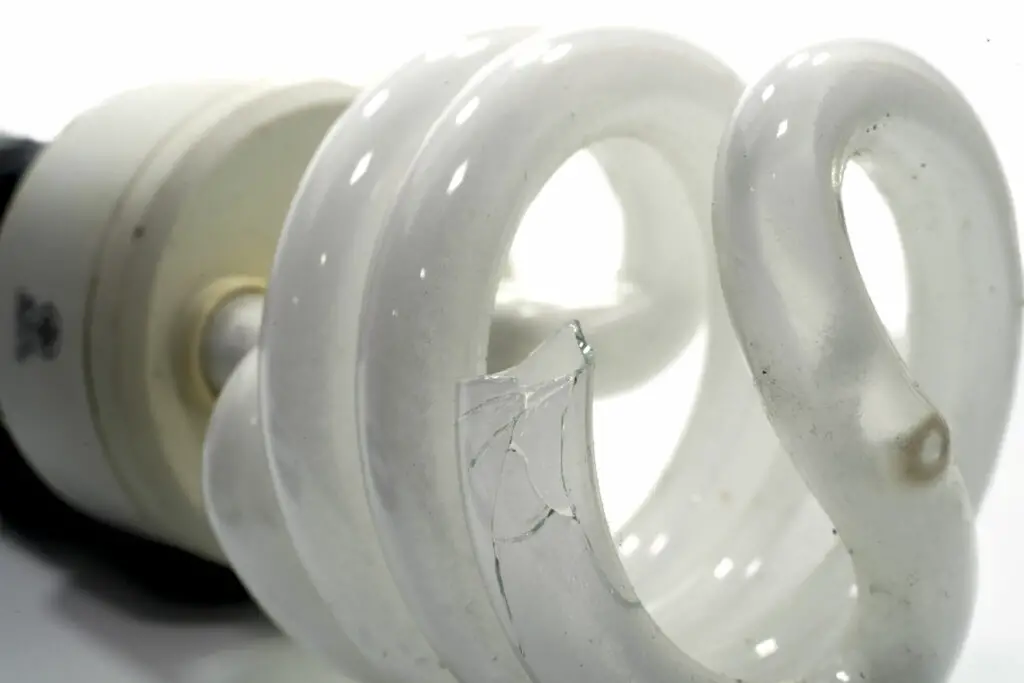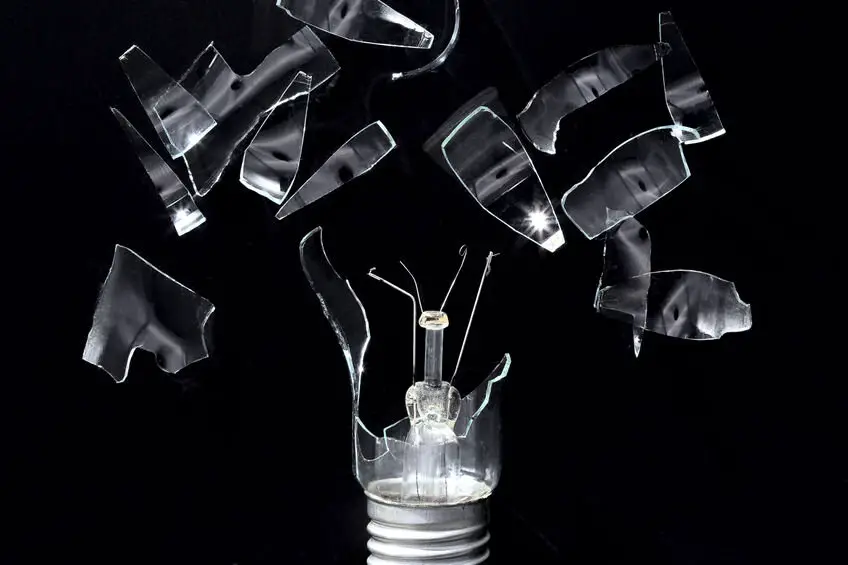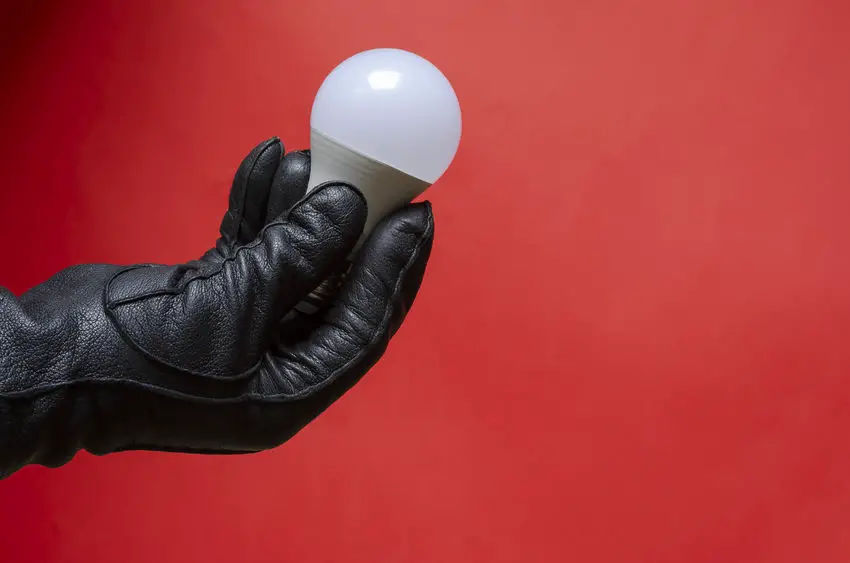Reasons Why Light Bulbs Explode
Light bulbs much like any other piece of technology will eventually fail and in some cases break. Some light bulbs however take the breaking process further and can break the entire bulb as well.
Here we will go over different reasons that could be causing your light bulbs to blow up.

A Loose Connection Between The Socket And Light Bulb
One thing that could be causing lightbulbs to explode is that the connection between the socket and the bulb is too loose.
When a connection in an electrical circuit such as this one is loose it will cause the electrons to start jumping between point A to point B of the loose connection.
When electrons have to jump they start to generate a significant amount of heat. The heat generated by this could be enough to cause the bulb to blow.
The absolute most simple way to prevent this is to simply screw the bulb in as much as possible. Be cautious of not accidentally breaking the bulb while tightening it. Glass is very fragile and can cause a lot of damage if broken.
Electrical Power Surges
Another thing that can cause a light bulb to explode is a power surge in the electrical system. A power surge can simply be described as the sudden (and temporary) increase of voltage within your home.
A power surge can be triggered by a lot of different things, some of which are within your control and some that are not. They are mostly caused by large electric loads starting and stopping but can also occur if lightning strikes a transformer.
If you wish to know more about power surges we encourage you to go here.
Power surges mostly affect electronics such as computers and TVs since these types of electrical loads are the ones that are the most sensitive to voltage changes. This is because most electronics are designed to run at a specific voltage and might fry if the voltage increases too much.
This is why lighting that is dependent on electronics will tend to break when subject to voltages higher than intended, they simply can’t handle the increase of electricity this brings.
The most common light sources that are dependent on electronics today are CFLs and LEDs. While they break in the circumstances of a power surge, they won’t necessarily explode.

A CFL might explode due to gas inside of it getting ignited but the most likely scenario for these and LEDs are that they simply stop working. If you are dealing with a broken CFL bulb, please go here for detailed instructions on how to deal with the mess.
If you instead have an incandescent bulb or a halogen bulb however it is a bit different. These bulbs don’t rely on any electronics to function and instead use a completely mechanical function.
These bulbs rely on a tungsten filament that produces light via a glow produced by the heat generation of passing electrons. This filament is very thin and very heat resistant, but with a power surge large enough it can cause the filament to burn out and snap.
If you wish to know more about the construction of all bulbs mentioned, we recommend you go here. Here we cover the construction, usage and energy efficiency of today’s most common light sources.
The Bulbs Wattage Being Wrong
Another reason why a bulb might explode can have to do with its labelled wattage in comparison to the fixture it sits in.
If a bulb’s wattage is higher than the wattage of the fixture it is not unlikely that it blows. This is because of the way electricity functions when you connect a load that is too big for what the circuit is intended for.

If you load a 60W lamp into a fixture made for 40W the fixture will try to accommodate for the 60W bulb by increasing the current more than it can handle.
This by itself is a fire hazard but will also cause the bulb to explode if exposed to this for long enough.
In order to avoid this you should simply check beforehand what the fixture is meant to house and to not go above that number.
Undershooting the wattage needed however is fine because the number only states a maximum limit that we should not exceed.
Skin Oils On The Surface Of The Bulb
This won’t apply to all bulbs but for some, the crucial aspect that causes them to blow up is the residual skin oil we leave on the bulbs upon the glass. This is mainly the case for incandescent bulbs and halogen bulbs.
These bulbs in particular are subject to blowing up for this reason because they operate at a high temperature. This is important because it is the temperature itself that interacts with the oil and causes it to explode.
When the bulb gets hot enough the oil will start to collect heat and eventually boil and/or burn. This will weaken the structure of the bulb significantly and will in most cases blow, especially if it’s a halogen bulb since they operate at a higher temperature than the incandescent bulb.
For more information regarding this, check out our article Why You Shouldn’t Touch Halogen Bulbs With Bare Hands.

The best way to avoid this is to wear some sort of glove to protect the glass while you are switching out bulbs. If you are using bulbs such as LED however this is not something you need to do since they don’t produce much heat.
Faulty Parts Within The Light Bulb
As with anything factory-produced that can be bought, it is a possibility that a light bulb explosion could be due to a faulty part.
This faulty part could be within the socket, the filament, the electronics or the actual glass bulb itself. There is no say in what specific component would be damaged in this scenario.
In this case, there is not much to do about the bulb other than replace it and go on with a new one. If problems still persist it is most likely something else that has already been listed or something completely unforeseen.
Summary
There are many reasons that can cause light bulbs to blow prematurely. These reasons which we have discussed are:
- A loose socket connection
- Electrical power surges
- The bulbs wattage was wrong
- Skin oils on the surface of the bulb
- Faulty electronic parts within the light bulb





